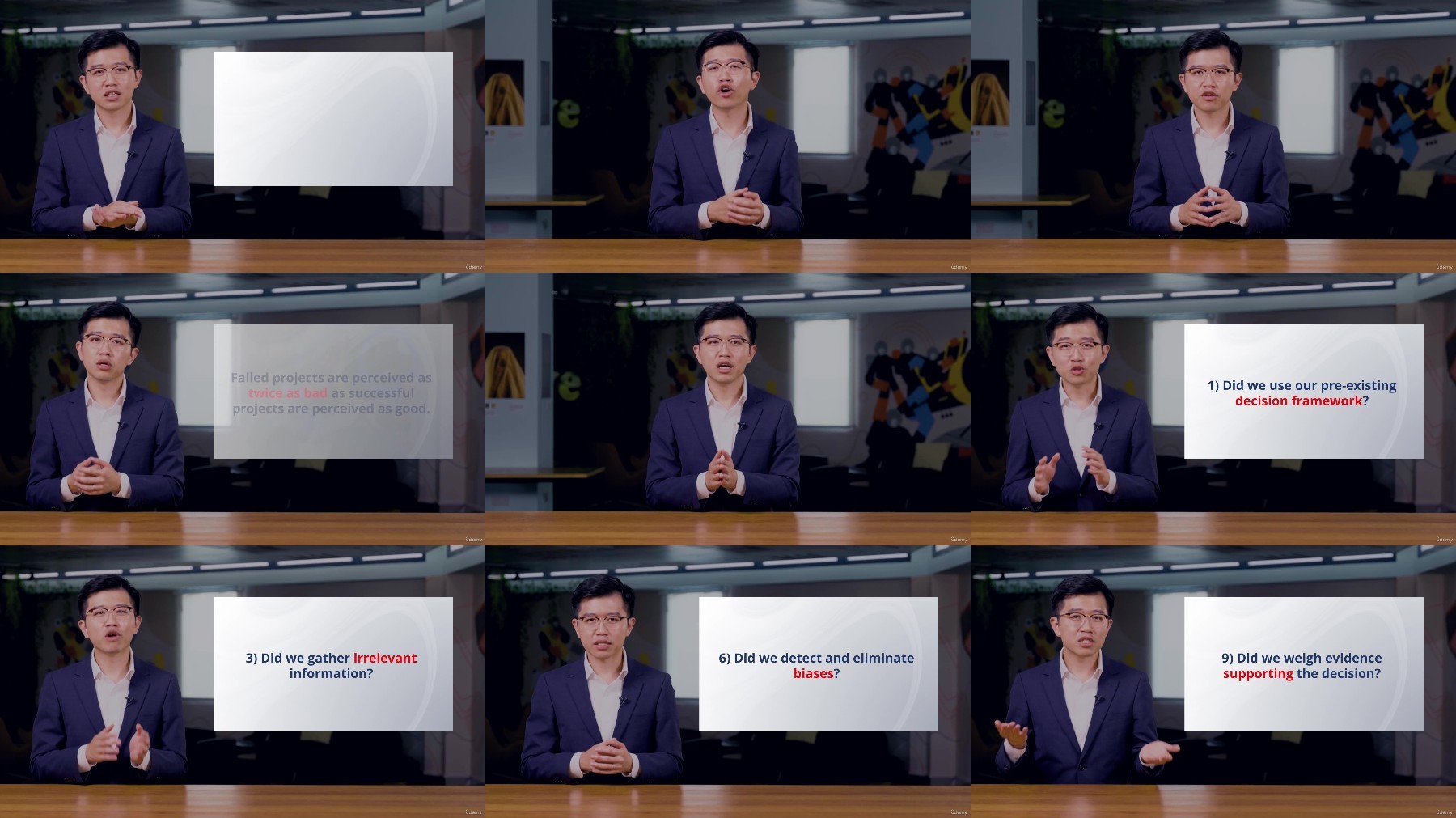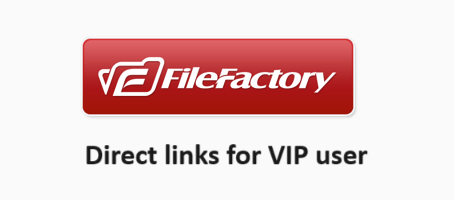Think Smart: Unlocking Your Critical Thinking Potential
09
May
2024
Think Smart: Unlocking Your Critical Thinking Potential
Published 5/2024
MP4 | Video: h264, 1920x1080 | Audio: AAC, 44.1 KHz
Language: English
| Size: 558.30 MB[/center]
| Duration: 1h 4m
Strategies for Better Judgment and Superior Decision-Making
What you'll learn
Distinguishing between critical and strategic thinking
Reducing the impact of poor judgments
Identifying cognitive biases
Applying counterfactual thinking
Overcoming the hurdle of loss aversion
Steering clear of logical fallacies
Fostering a culture that values critical thinking
Requirements
No prior professional experience needed
Description
Course SynopsisIn this comprehensive course, participants will develop essential critical thinking skills to navigate today's complex world effectively. Through engaging videos and interactive exercises, they will learn to identify and mitigate cognitive biases, utilize the REF method for decision-making, employ counterfactual thinking, overcome loss aversion, recognize logical fallacies, and frame arguments persuasively.The course begins by emphasizing the importance of critical thinking in decision-making and problem-solving. Participants will explore cognitive biases and learn practical strategies to mitigate their effects, such as the REF method and counterfactual thinking.They will also discover techniques for overcoming loss aversion, avoiding the planning fallacy, and identifying and addressing common logical fallacies in arguments. The art of framing arguments effectively will be covered, along with tips for organizing critical thinking workshops.Throughout the course, participants will be encouraged to track their progress using decision notebooks, documenting their decision-making processes and identifying areas for improvement.By the course's conclusion, participants will have honed their critical thinking skills, enabling them to approach complex issues with clarity, logic, and creativity. They will be empowered to make better decisions, communicate more effectively, and lead confidently in various aspects of their lives.Learning ObjectivesDistinguishing between critical and strategic thinkingReducing the impact of poor judgmentsIdentifying cognitive biasesApplying counterfactual thinkingOvercoming the hurdle of loss aversionSteering clear of logical fallaciesFostering a culture that values critical thinkingTrainerThis course will be conducted by Sean Lim from Peacemakers Consulting Services. Who should attend?Professionals seeking to enhance decision-making skills: Ideal for professionals in any industry aiming to improve decision-making abilities crucial for navigating complex scenarios effectively.Managers and leaders looking to improve team critical thinking: Tailored for leaders seeking to cultivate a culture of analytical thinking within their teams to drive organizational success.Individuals interested in understanding cognitive biases and fallacies: Suited for those eager to explore how cognitive biases and logical fallacies impact decision-making and behavior.Anyone involved in problem-solving and analysis: Designed for individuals in roles requiring effective problem-solving and analysis, such as data analysts, project managers, consultants, and researchers.Students aiming to develop strong analytical abilities: Ideal for students at all educational levels seeking to enhance academic performance and prepare for future career success through improved critical thinking skills.Educational ApproachCombination of short but informative lectures and quizzes for review Use of real-world research data and case studiesPrerequisitesNo prior professional qualifications are requiredCourse Content:Introduction to Critical ThinkingDefinition of critical thinkingImportance of critical thinking in decision-makingOverview of course objectivesUnderstanding Cognitive BiasesExplanation of cognitive biasesExamples of common cognitive biasesImpact of cognitive biases on decision-makingThe REF Method: Evaluating IntuitionExplanation of the REF method (Regularity, Exposure, Feedback)Application of the REF method to decision-making scenariosImportance of conscious reasoning in critical thinkingCounterfactual ThinkingDefinition and purpose of counterfactual thinkingSteps to apply counterfactual thinkingCase studies and examples of counterfactual reasoningOvercoming Decision-Making BiasesUnderstanding loss aversion and its impactTechniques to mitigate loss aversion in decision-makingImportance of separating decision process from outcome evaluationIdentifying Logical FallaciesOverview of common logical fallaciesExamples and explanations of each fallacyStrategies to recognize and address logical fallacies in argumentsThe Art of FramingExplanation of framing techniques in persuasionPositive vs. negative framingGain vs. loss framingEmotional framing and its impact on decision-makingOrganizing Critical Thinking WorkshopsPlanning and conducting critical thinking workshopsAssignments and activities to foster critical thinking skillsUse of mental models to stimulate intellectual curiosityTracking Progress in Critical ThinkingImportance of tracking progress in critical thinkingDecision notebooks: purpose and contentStrategies for self-assessment and improvement
Overview
Section 1: Introduction
Lecture 1 Enhancing Critical Thinking
Lecture 2 Navigating Five Critical Thinking Pitfalls
Section 2: The Critical Thinking Difference
Lecture 3 Critical Thinking vs Strategic Thinking
Lecture 4 Thinking about Thinking – The 7 Elements
Lecture 5 Moving Beyond Surface Thinking
Section 3: Minimising Bad Judgment
Lecture 6 Two Systems of Thinking – Nobel Prize Style
Lecture 7 Identifying Cognitive Biases
Section 4: Improving Decision Quality
Lecture 8 The REF Method: Your Intuition REFeree
Lecture 9 Utilising Counterfactual Thinking
Lecture 10 Overcoming Loss Aversion
Section 5: Critical Thinking Fallacies
Lecture 11 Common Logical Fallacies
Lecture 12 Avoiding the Planning Fallacy
Lecture 13 The Art of Framing
Section 6: Creating the Critical Thinking Culture of Curiousity
Lecture 14 Questions that Fuel Curiosity
Lecture 15 Organizing a Critical Thinking Workshop
Section 7: Conclusion
Lecture 16 Tracking Your Progress
Lecture 17 Final Remarks
Professionals in Business and Management: Leaders, managers, and executives aiming to enhance decision-making, problem-solving, and innovation in their organizations.,Students in Higher Education: College and university students seeking to improve critical thinking skills for academic success and future career readiness.,Educators and Trainers: Teachers, professors, and corporate trainers focused on fostering critical thinking among students or employees.,Professionals in Healthcare: Healthcare practitioners striving to improve clinical judgment, diagnosis, and patient care outcomes.,Researchers and Analysts: Individuals involved in research, data analysis, and policy development requiring evidence-based reasoning and logical analysis.,Government Officials and Policy Makers: Public administrators and policymakers aiming to enhance decision-making and policy development processes.,Entrepreneurs and Start-up Founders: Innovators and entrepreneurs seeking to evaluate business opportunities, assess risks, and develop sustainable business models.,Individuals Seeking Personal Development: Anyone interested in personal growth and self-improvement, looking to navigate challenges, make better decisions, and pursue lifelong learning.




Free search engine download: Think Smart Unlocking Your Critical Thinking Potential
Note:
Only Registed user can add comment, view hidden links and more, please register now
Only Registed user can add comment, view hidden links and more, please register now